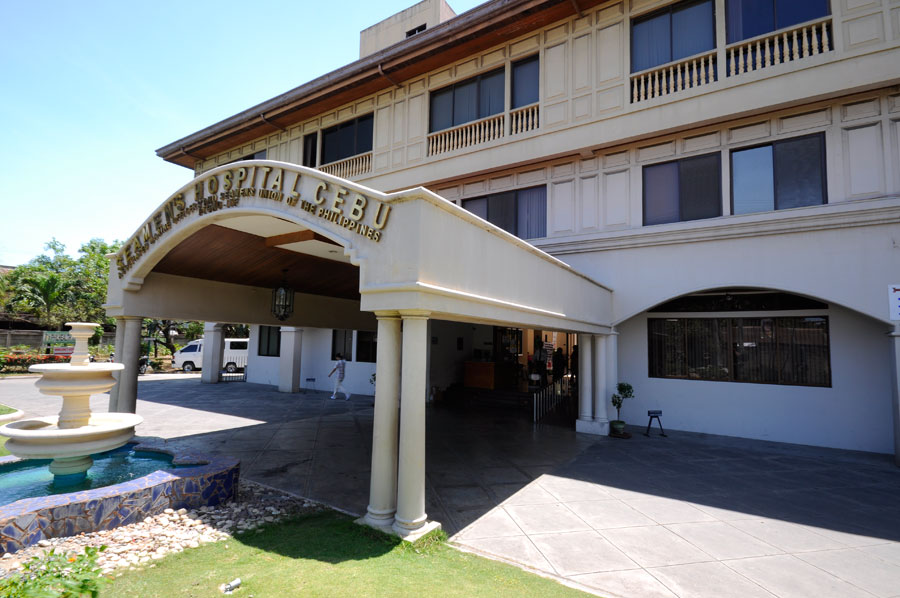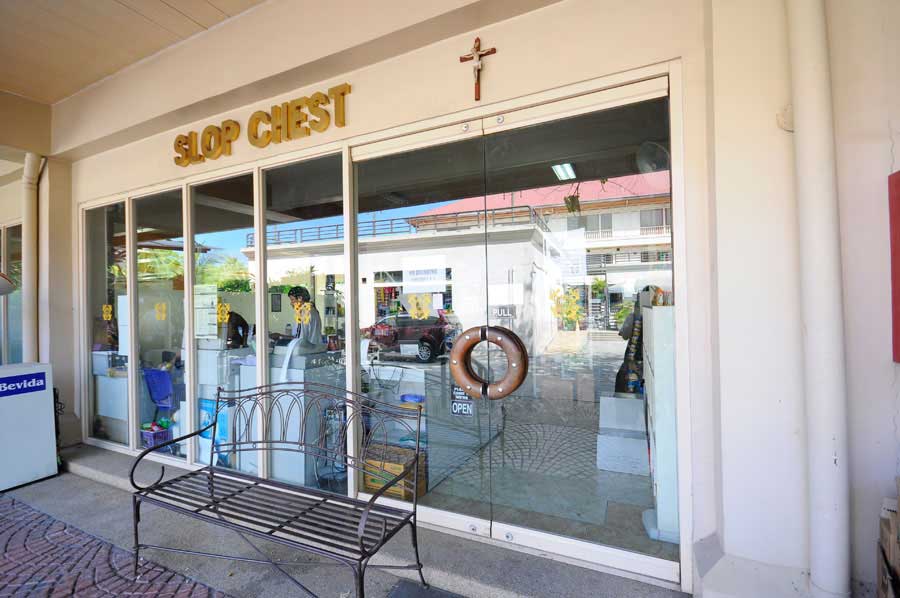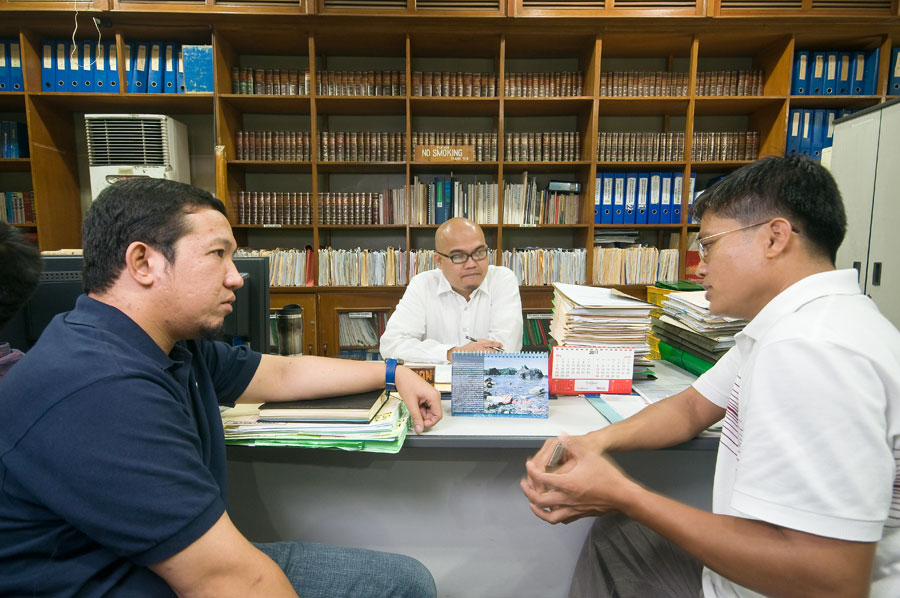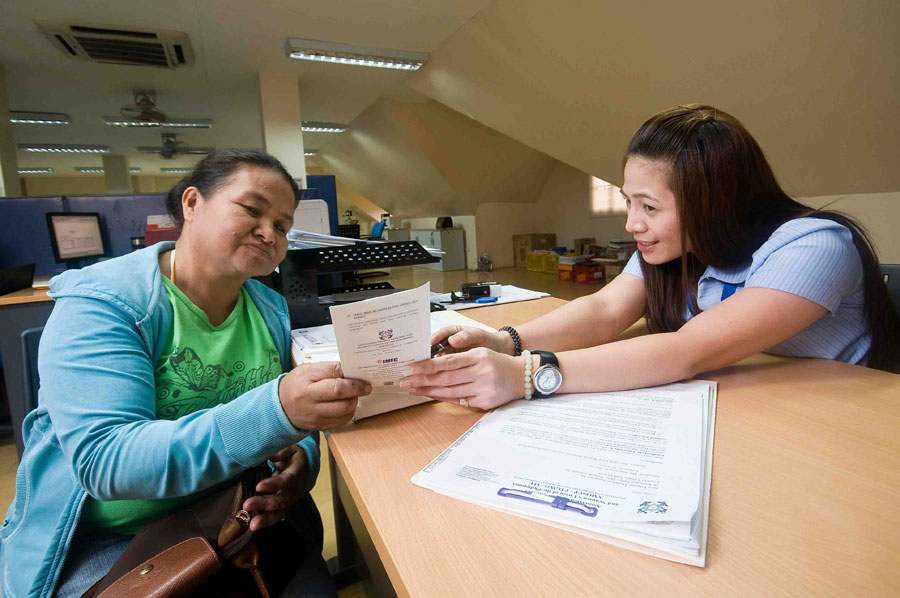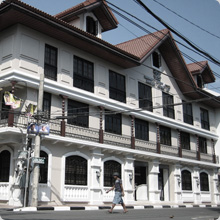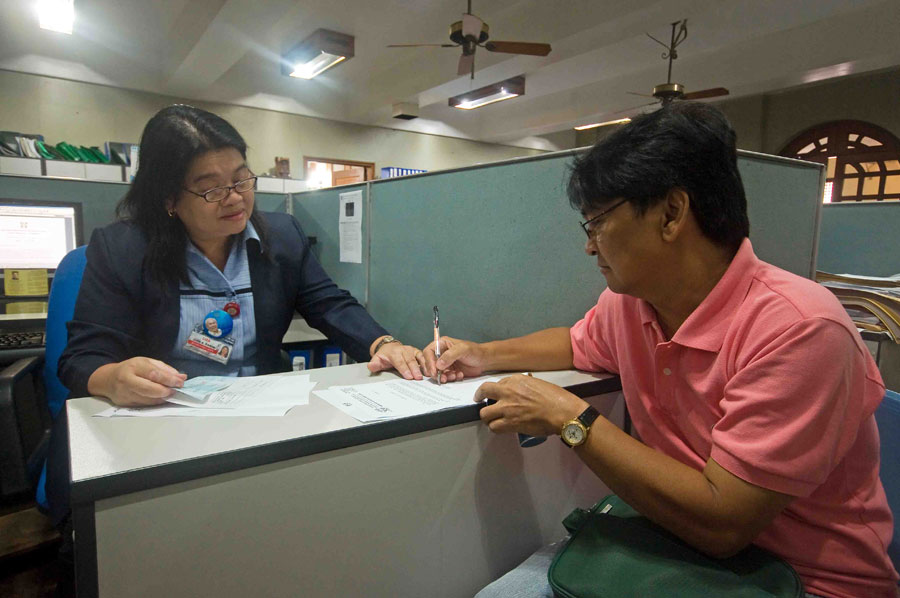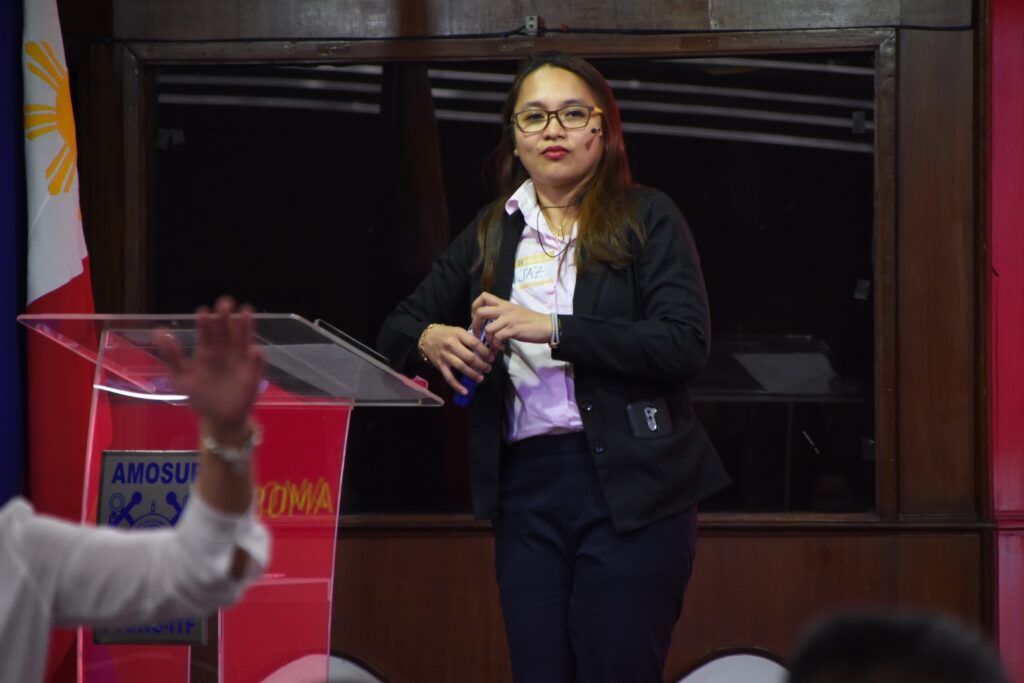
She may have suffered a spell of sexual harassments and discriminations in her early years as a female junior officer on board. But such abuses never deterred this promising Master Mariner to pursue her chosen career and even drove her to inspire more women in the profession.
Today, Captain Jasmin Labarda is leading female seafarers to stand up for their rights and fight against sexual abuses. “I’ve got my experience full of discriminations,” she revealed.
Jasmin, or Captain Jaz to friends and colleagues, said despite such challenges she realized that she must create small ripples of change. “I needed to push with my career because I wanted to make a difference. I believed then that we were professionals. So I pursued it,” she stressed.
According to Jaz, she stood to be tougher, and because of her faith in God, she had overcome her fears and anxieties at work. “I even turned out to be a good person,” she shared. She further said she never tolerated or allowed the same mistreatment by her senior officers to subordinates as she stepped up into senior management post.
Now the chair of AMOSUP Women, Jaz leads the group in advancing women seafarers’ rights. She started with the Union’s group in 2014 as the first representative of the Young Seafarers of AMOSUP to the International Transport Workers’ Federation. During the time, she became the ITF Women Committee head among the young workers. AMOSUP Women was formally formed and launched in 2018.
At the recent international women’s day in March, which AMOSUP Women celebrated, Jaz opened herself up bravely divulging incidents of sexual abuses she experienced in the past. It started when she was 17. “I was asleep and woke up ‘pini-finger na ako, hinihipuan na ako nung kasama ko. (I felt my colleague was already fingering and touching me)” she stated.
She said she didn’t know what to do. “Tumalikod na lang ako.” (I just turned my back) While in tears, she continued: “Wala akong pinagsabihan. Sinabihan ko lang yung tao na kaklase ko in 2005.” (I didn’t tell anybody. I only told one of my classmates in 2005).
When she was a third-year cadet on board a Maersk Line vessel, Jaz endured the burden of discrimination. “During that time pinapahirapan ako ng kapitan.” (the captain was giving me a hard time) Jaz claims she was always singled out her superiors would keep an eye on her and magnify even her slightest mistake. In one instance, when she had to be inoculated: “Wala daw akong vaccine, pinapababa ako [ng barko]. (I was told I had no vaccine and was asked to disembark the ship) But she knew she was only told to come down so that others could take over her duties.
When Jaz was a Third Officer at age 20, she dealt with another blow of sexual abuse. She was on duty at the bridge. “Kausap ko lang sya (a male officer), tapos yung sarili nya biglang nakadikit at kinikiskis na nya sa likod ko.” (I was just talking to him, then all of a sudden he was behind me rubbing himself on my back).
When she realized it (what her co-officer was doing), she could not move and didn’t know what to do. However, she could sense others outside who seemed to be observing what was happening. She suspected they’re making it for fun, perhaps figuring what her reaction would be.
“I didn’t know how to confront him in that situation. We were trained to do the best as we can. Kung may mang rape sa ‘yo, alam mo ang gagawin mo. Pero kung pa friendly-friendly at wala kang support- [papaano]?” (We were trained to handle situations such as rape. But if the abuse was done in a friendly manner and nobody backs you up- how do you deal with that?)
Jaz wants to reach out to other women seafarers. She said she wants to be of help who have suffered the same experience of sexual abuse. “I will never stop giving you my hand. And I wish you help yourself too,” she reminds women seafarers.
Jaz is a seafarer’s daughter herself. She drifted into the maritime world when she went along with her mother one time for a medical check-up at the AMOSUP Seamen’s Hospital Manila. Her mom learned and told her about the AMOSUP scholarship being offered at the Maritime Academy of Asia and the Pacific. Jaz got curious and immediately looked into the opportunity through an advert. She said she still had no idea what course to take in college at the time so she decided to take the entrance test. “Dala din ng pangangailangan”, (Out of necessity) she said. Jaz then found herself at the qualifying exam, which she passed. She entered the academy in 1999.
Four years later, Jaz embarked as a cadet on her first ship, the VLCC Elizabeth Maersk and followed by another VLCC Evelyn Maersk. “It’s either you’re a tomboy or malandi ka (you’re a flirt) were the usual stereotypes when I began working on board. Other women get envious as their husbands, especially the officers, are with you at work,” she shared.
Jaz saw how OFWs, both seafarers, and land-based women workers, are treated abroad. She said she experienced it herself. “Despite this, I continued working as a human being, believing in my faith, a loving and a normal person even if the job is hard,” she proudly remarked.
Jaz obtained her master mariner’s ticket in 2010 when she shifted career gears to offshore shipping. But she had to disembark as a trainee and to start from the bottom.
“It’s like you’re used to driving a car, then suddenly you’ll handle a 10-wheeler lorry,” Jaz explained of the process. Jaz has gained her sea-time offshore, attended the required training and received the corresponding certificates before getting promoted. She’s now working her way up to the peak of her career, yet she is already the highest ranking Filipino female officer in her company as a senior chief officer.
Since 2009 she has been working with the UK-based French offshore engineering service provider TechnipFMC, which provides complete project lifecycle services for the energy industry. She is happy with her current company, which has just bagged a contract to deliver and install a subsea production system in the Norwegian part of the North Sea.
Professionally, Jaz has gone into different sectors of the maritime industry. Not many are able to do it, she said. “I’ve also achieved a lot in this profession. No other Asian has achieved the top position in our company (in the oil and gas) right now,” Jaz stressed.
Jaz is still in pursuit of her dreams. But she admits she currently doesn’t want any distraction when asked about her future partner in life. She says she still has to find someone who will support her dream. SF
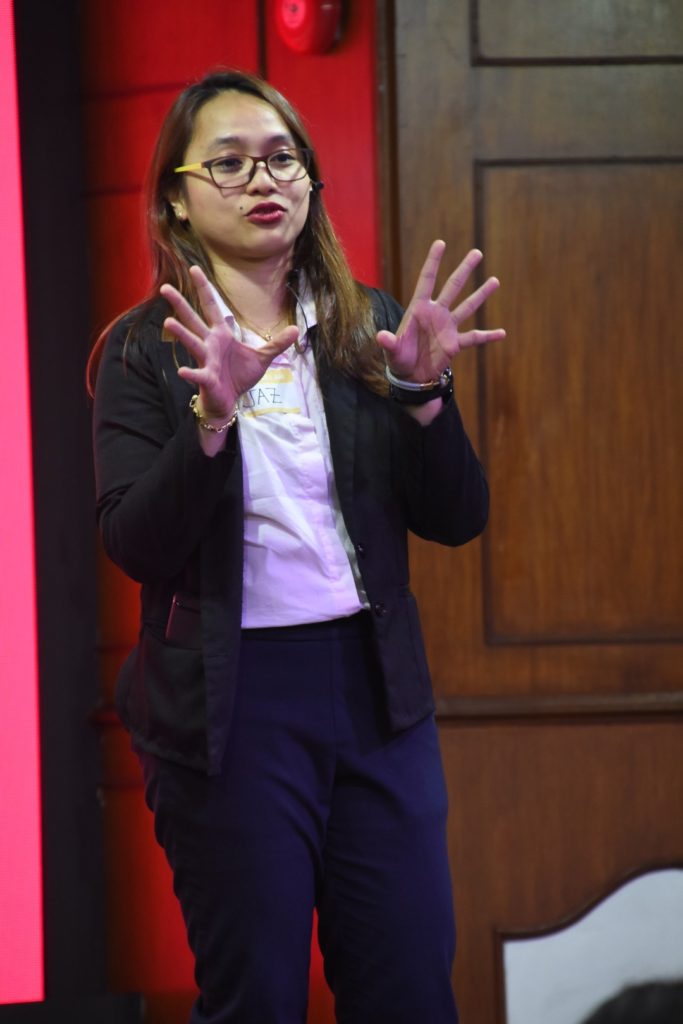
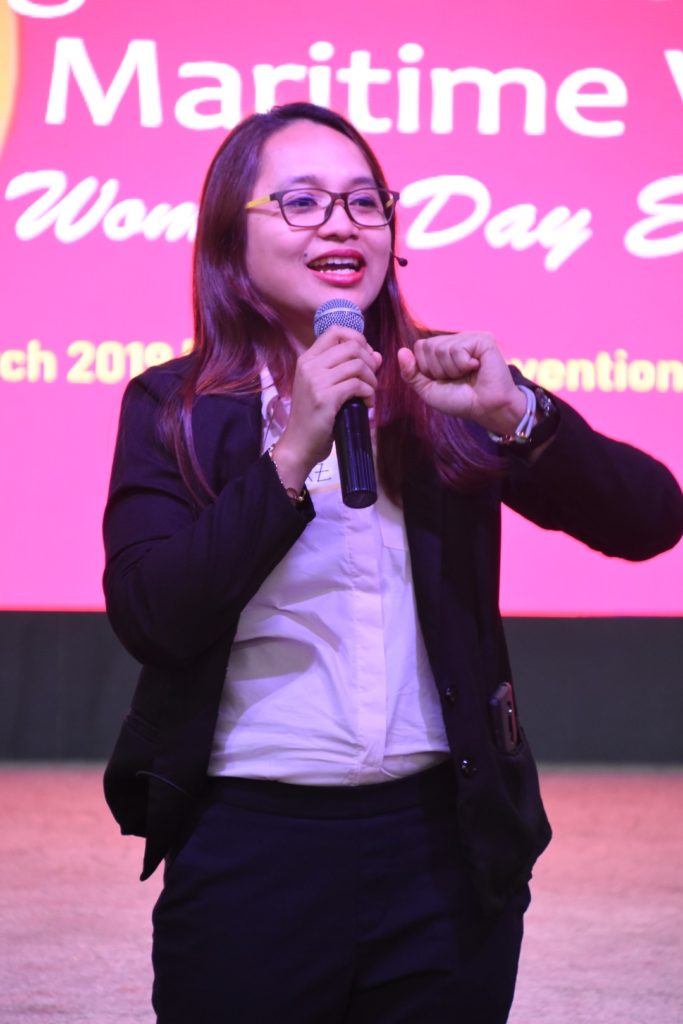
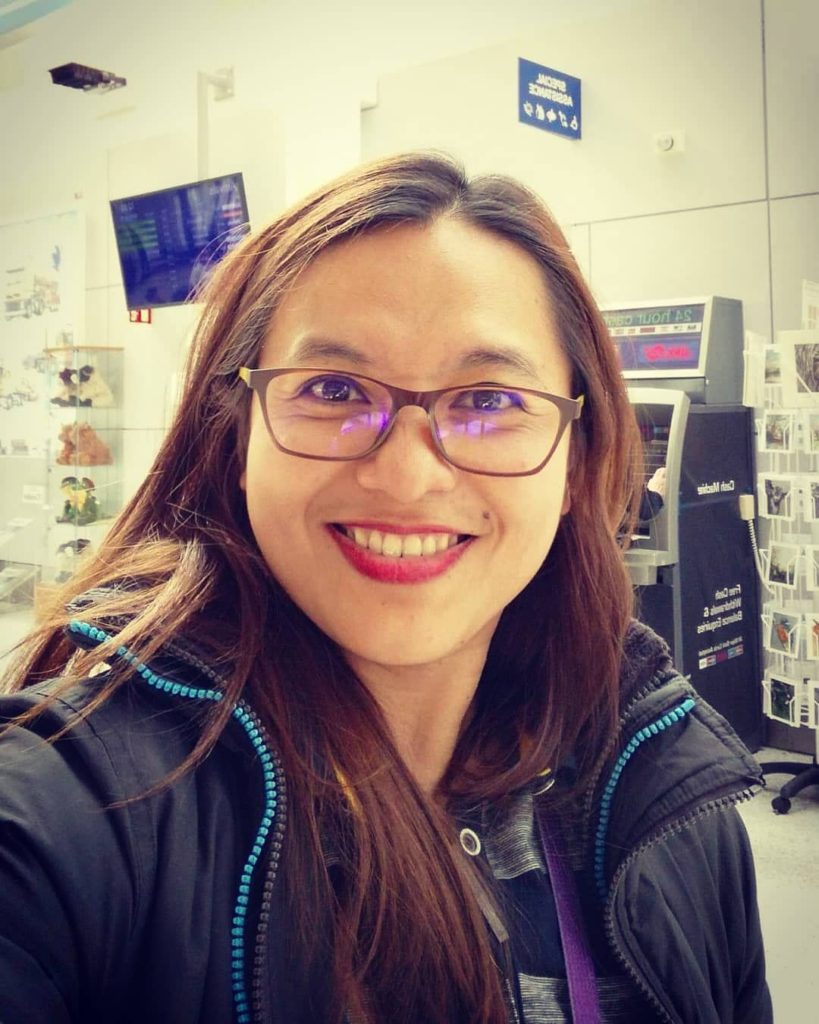
Q and A with Captain Jasmin Labarda
What is your favourite role as a senior officer on board?
We have a lot of responsibilities on board, but enabling to train people is one of the roles I always want to do. That way we build a teamwork within.
How would you describe your first experience as a cadet on board?
Sadly I was shouted at by an Asian female Chief Officer apparently after I became a source of intrigue among the crew. She hated me for that. Then there was a Third Officer who became so jealous kaya pinapahiya nya rin ako (that’s why he also puts to shaming me out). Then there was a new Captain who had joined the ship who also got to use to shaming me. Prior to that a Chief Mate, whose wife had joined our ship in Korea, was courting me during our duty while his wife was on board.
What is your most memorable experience on board?
When we get appreciated for a job well done by the clients, pilots and others.
What is the major challenge you’ve faced in your career?
I am being confronted by the question of whether to continue working. And people might ask what my reasons are. Or should I move to another company. But I’m happy with my company. If you always go against the tide, it’s so nakakapagod din (so tiring too), battling strong winds, high waves. We have a fixed rotation but with God’s grace I can still have the strength to carry on. Being able to help people gives me the fuel to work.
What has the seafaring profession contributed to your life?
It has greatly helped my family. It has helped me personally. It has taught me a lot of lessons that I can’t trade for anything else as it has made me who I am today. That includes all the sadness, happiness and everything.
How could you encourage more women to join the profession?
Perhaps we need to have policies protecting not only women but every seafarer, proper recruitment system and do away with the “backer” system. Women are sometimes in their own class, but their competency is being neglected just because you have the generalisation or stereotyping that women are weak.
In many parts of the world women are respected. Because it’s all about respect. The Philippines being one the largest source of seafarers, the country I think should improve its system, more decency in the job by removing politics and corruption.
Do you enjoy your leadership in the women sector of seafaring?
I’m loving it because that’s one of the purposes why I’m here. I’m playing the song of God. If much has been given, much will be required of you. So, if I’m receiving this much, the more I have to give.
What other advocacy you’ve been trying to promote?
I want to make sure that we can train people, share knowledge and skills among men and women on board and on shore when there’s an opportunity.
What are your plans over the next several years?
I still want to continue sailing as long as there is a job for me. I’ll go and enjoy it. I want to achieve more. It’s very difficult to share what your dreams are, though. I’d rather work to achieve them and continue to be happy. SF

